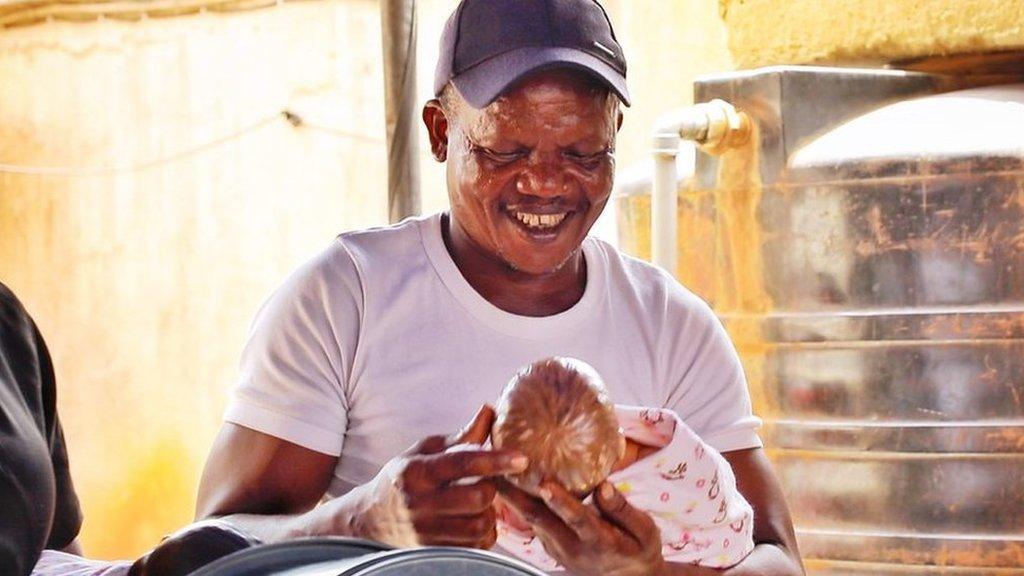Diastasis recti: 'Frustrating' treatment wait after giving birth
- Published
"I do have to consider it before I do everyday tasks"
A woman has spoken of the frustration of trying to get treatment for a common pregnancy condition that left her unable to carry out everyday tasks.
Ffion Thurston-Kellar, 23, from Cardiff, developed diastasis recti, external when pregnant with her daughter last year.
It occurs when the growing womb separates the muscles down the middle of the stomach.
Cardiff and Vale health board said it was sorry to hear of Ms Thurston-Kellar's experience.
For most, the stomach usually returns to normal by the time the baby is eight weeks old, but for Ms Thurston-Kellar, who had never heard of the condition, that was not the case.
"My experience with the referral system's been difficult," she said.
"I still haven't heard about it and it's been seven months since the birth now, which is quite a long time, and for diastasis, you need treatment quite early on to help it, so that's a bit frustrating."
Ms Thurston-Kellar decided to get private treatment in the end, but said the diastasis continued to have an effect on her ability to do everyday tasks as a new mother.
"I do have to think about it before I do any exercise, or anything which strains my core muscles.
"When I pick Haf up I really need to think about it or before I pick anything else up like a car seat or something like that," she said.

Diastasis recti, shown on the left, is the separation of muscles that run down the stomach and is common in pregnancy
She said the condition had also affected her self-confidence.
"It's changed how my stomach looks, and not just that but also my stretch marks too, which happen to every pregnant women," she said.
"But it's just hard coming to terms with that big change."
She is trying to raise awareness of the condition, as well as other "taboo topics" surrounding motherhood, such as breastfeeding and periods, through her Instagram account.
"I think it's really important to raise awareness of these topics, so that people can know what can happen to anyone, and to speak to other people in similar situations, so that they can then speak with confidence, and don't feel like it's something to be ashamed of," she said.
"It's something to be happy and confident about, because this is the body you've grown your baby in, and you've done something amazing, and created another person, and not to be ashamed or embarrassed by that."

Ffion Thurston-Kellar wants to raise awareness of diastasis recti
Specialist women's health and musculoskeletal physiotherapist Carys Williams said not having treatment for the condition could have long-term effects on the patient, including back pain, problems in the pelvis, prolapse and hernias.
She said: "There's not a lot of awareness of the condition so I'd imagine that there are a lot of people with the condition who don't know they have it.
"There's a negative perception, they don't like how the stomach looks, and that can have a big impact on the mum's confidence.
"People don't discuss these things openly. I think often some mums just suffer in silence, when there's so much we can do to help."
She urged anyone with symptoms to see a medical specialist in order to receive the right treatment.
A Cardiff and Vale University Health board spokesman said: "We are sorry to hear of this patient's concerns and experience.
"I can confirm that current waiting times for physiotherapy are within the 14-week Welsh Government target."
- Published31 December 2020

- Published26 November 2020

- Published10 December 2020
